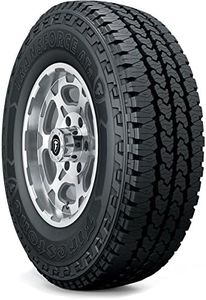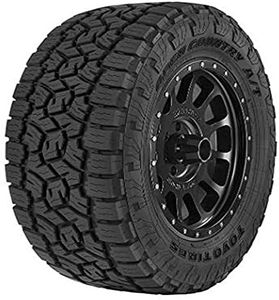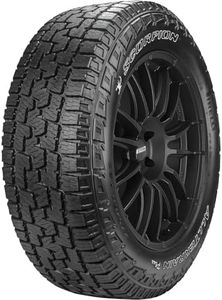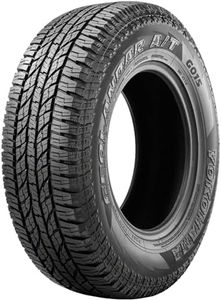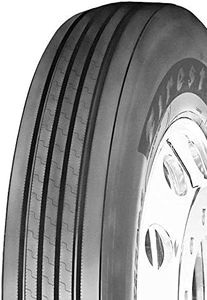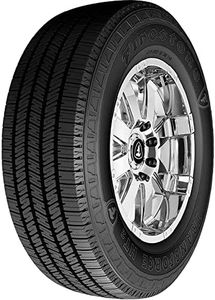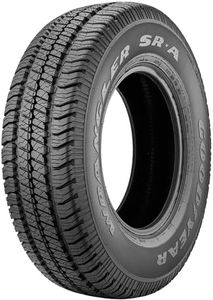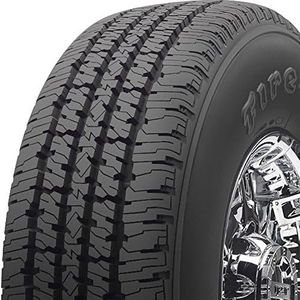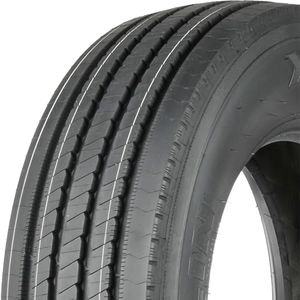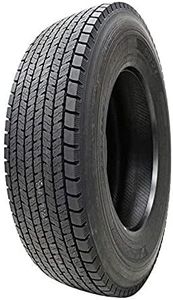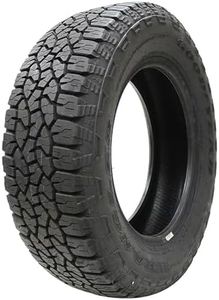10 Best Commercial Truck Tires 2026 in the United States
Our technology thoroughly searches through the online shopping world, reviewing hundreds of sites. We then process and analyze this information, updating in real-time to bring you the latest top-rated products. This way, you always get the best and most current options available.

Our Top Picks
Winner
Firestone Transforce AT2 All Terrain Commercial Light Truck Tire LT235/80R17 120 R E C
Most important from
107 reviews
The Firestone Transforce AT2 is designed as a sturdy all-terrain tire for light commercial trucks, sized at LT235/80R17 with a 31.8-inch diameter and a 6.5-inch rim width. It carries a strong load rating of 3,085 pounds per tire and features an E ply rating, indicating good durability for heavier loads and rough conditions. The tread depth is quite deep at 17/32nds, which supports longer tread life and better traction on uneven surfaces.
Its non-directional tread pattern helps maintain consistent grip both on and off the road, and the tire is built with a chip- and tear-resistant compound, helping it withstand gravel and rough terrain. The tire improves wet performance compared to its predecessor, offering safer handling in rainy conditions, although it is not specifically designed for winter use, so it may not be the best choice in snow or icy conditions. The manufacturer highlights longer-lasting performance, but fuel economy is expected to be typical of all-terrain tires.
This tire is a solid option for businesses needing dependable, rugged tires that handle a mix of highway and off-road driving, especially where wet traction and durability are priorities. However, it may fall short for winter driving or if fuel savings are a top concern.
Most important from
107 reviews
Toyo Tires OPEN COUNTRY A/T III LT275/65R20 126/123S E/10 TL
Most important from
14 reviews
The Toyo Tires OPEN COUNTRY A/T III in size LT275/65R20 is designed for commercial trucks requiring strong, year-round all-terrain performance. Its 10-ply rating and 3750-pound load capacity demonstrate its capability to handle heavy loads, making it suitable for many commercial uses. The directional tread pattern with a 16.4 mm tread depth offers good traction on diverse surfaces, benefiting both on- and off-road conditions.
Supporting a maximum pressure of 80 PSI, the tire maintains durability under demanding workloads. Its 275 mm section width and 34.1-inch diameter are common in light trucks and SUVs, providing a stable footprint. Customers rate it highly for reliability and performance, with an average of 4.8 out of 5 stars. However, the directional tread may wear unevenly if rotated incorrectly, and while it performs well in various weather conditions, it might not be the best choice for extreme winter ice or deep mud without additional specialized tires.
Fuel efficiency is decent but not specifically highlighted, so it may not offer the best mileage savings compared to dedicated fuel-efficient tires. This tire is a solid choice for commercial drivers needing a durable, versatile all-terrain tire that balances load capacity and reliable traction across seasons.
Most important from
14 reviews
Continental Conti EcoPlus HS3 295/60R22.5 150/147L J Commercial Tire
The Continental Conti EcoPlus HS3 is a robust commercial truck tire designed for regional service, making it suitable for trucks and buses. Its tire size of 295/60R22.5 and load rating of 150/147L J indicate it can handle heavy loads, with a maximum load capacity of 7,385 pounds.
The tire's 18-ply rating and the high maximum pressure of 130 PSI further emphasize its durability and strength, making it a reliable choice for commercial applications. Additionally, the tread depth of 19/32 provides sufficient traction and longevity.
Buying Guide for the Best Commercial Truck Tires
Choosing the right commercial truck tires is crucial for ensuring safety, performance, and cost-efficiency. The right tires can improve fuel efficiency, provide better traction, and last longer, which is essential for commercial operations. When selecting commercial truck tires, it's important to consider various specifications that will match your specific needs and the conditions in which the truck will be operating.FAQ
Most Popular Categories Right Now
